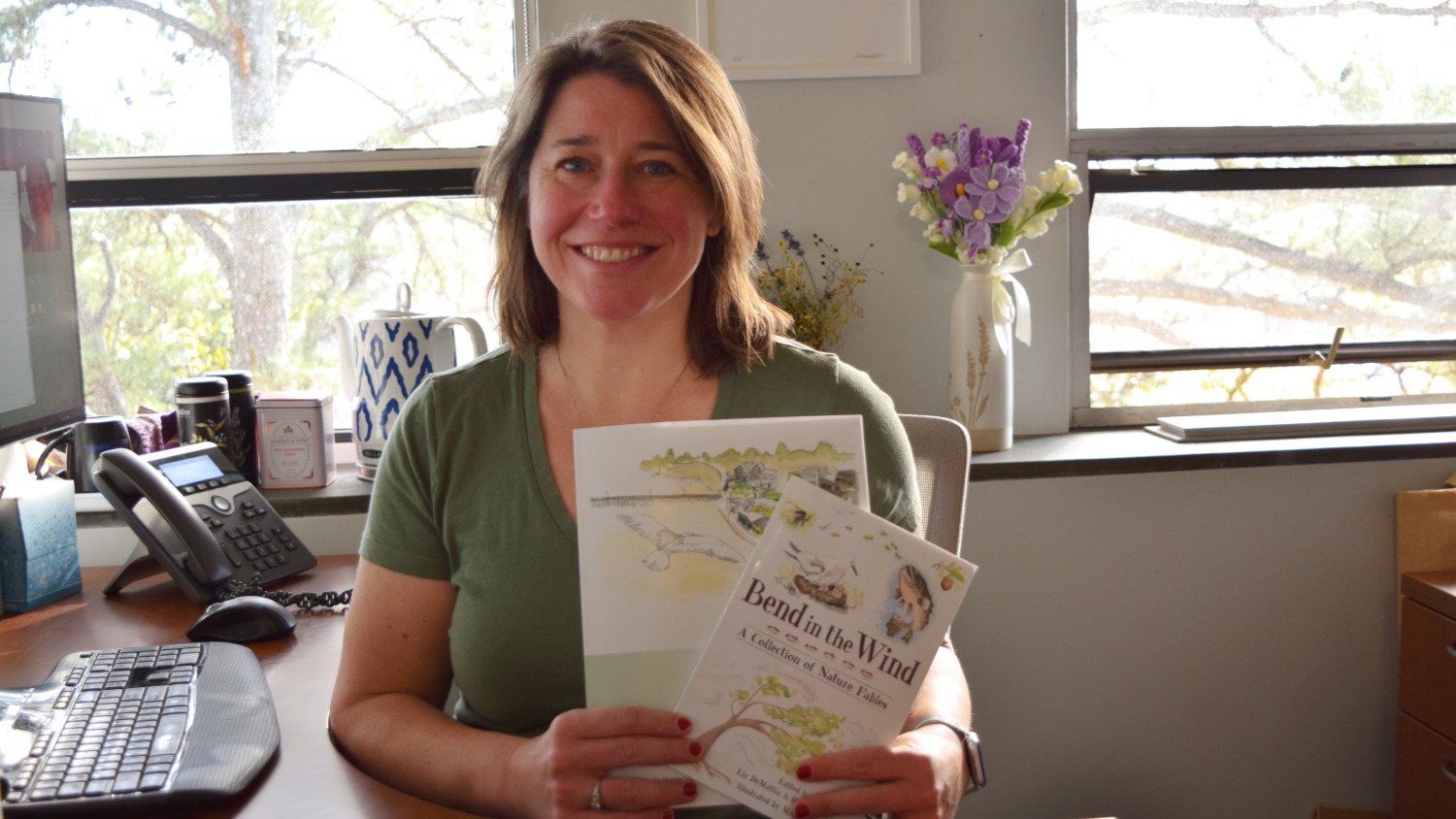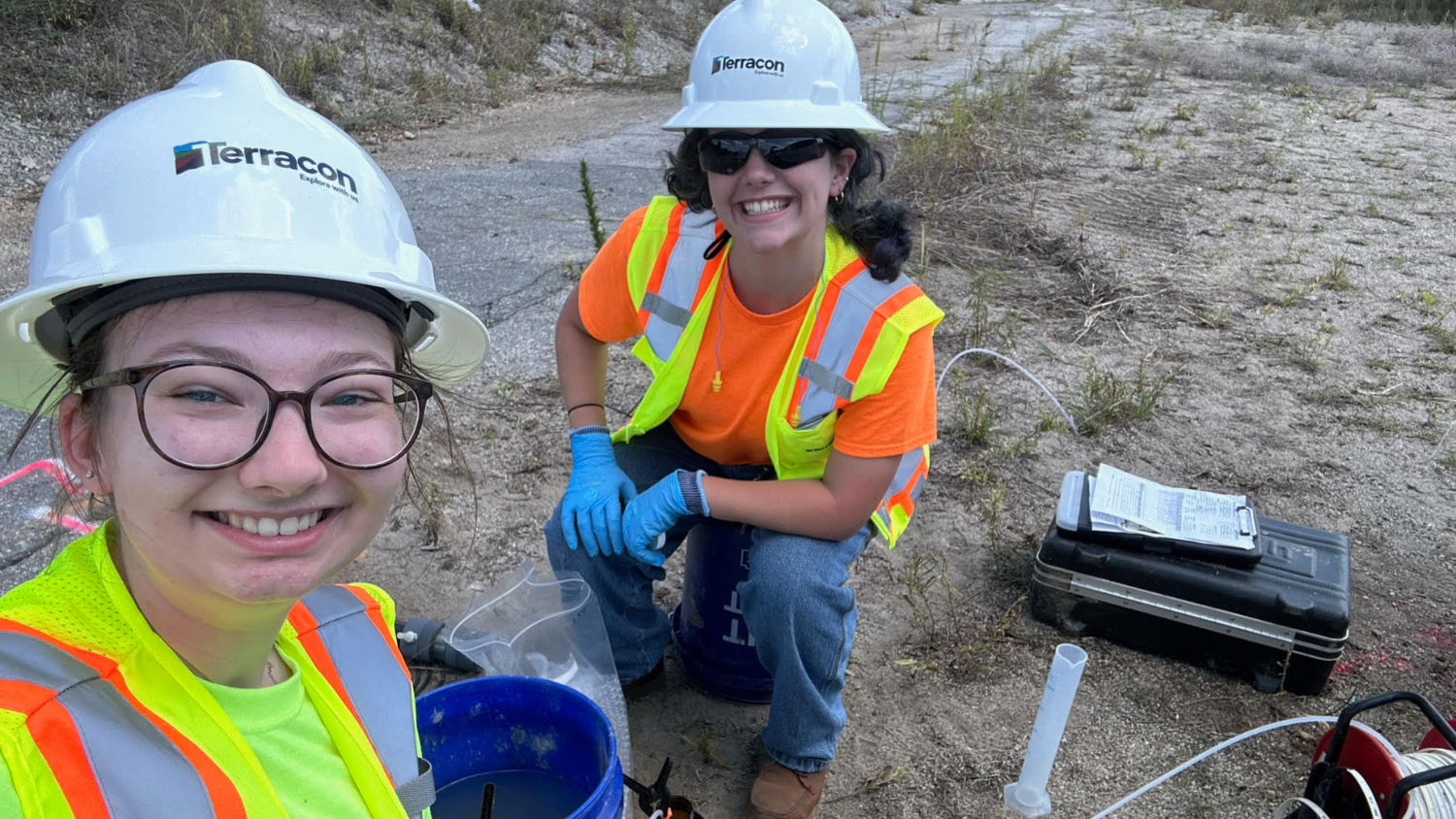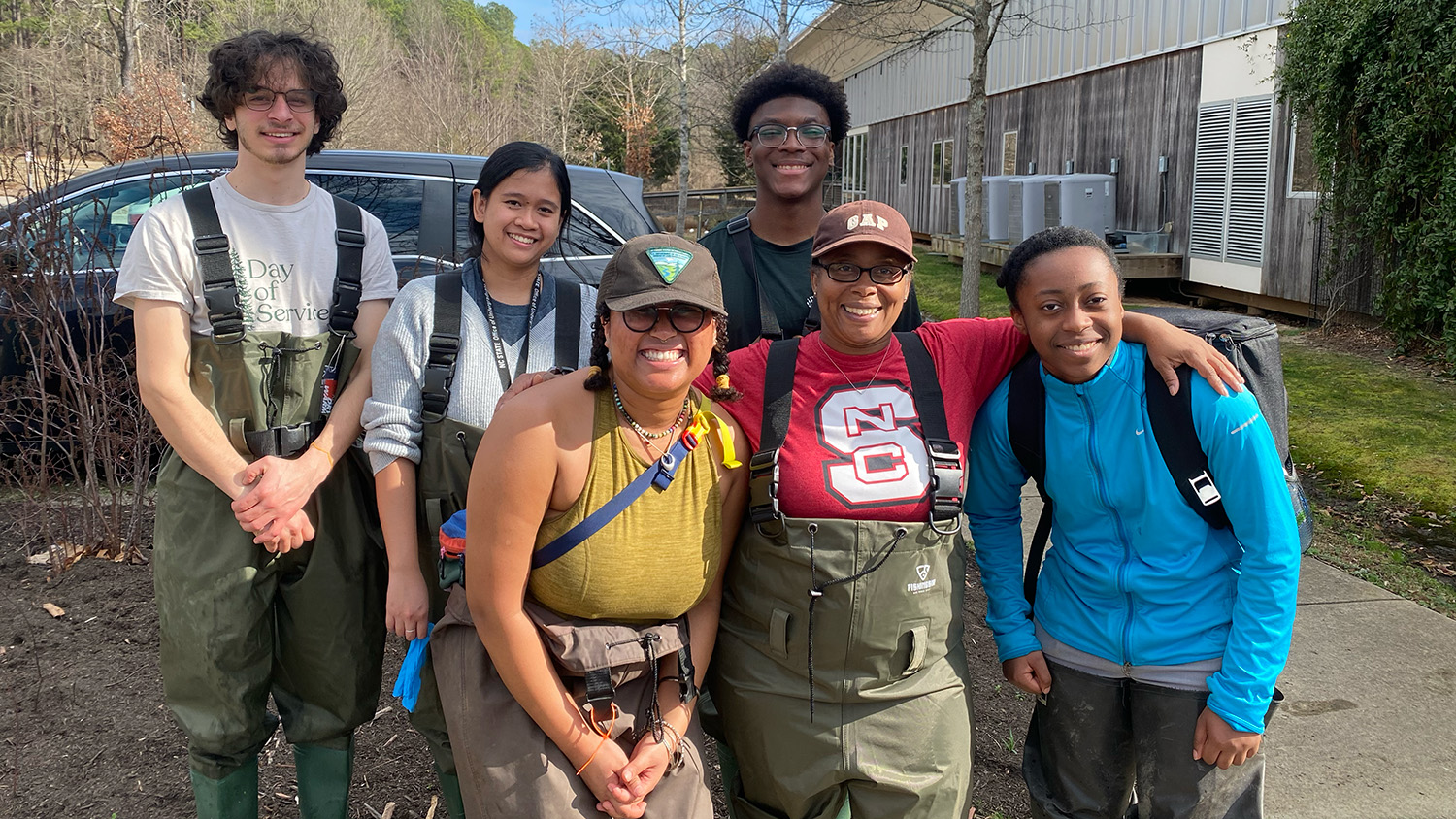Building the Renewable Energy Workforce of the Future
A new program aims to enhance the workforce development pipeline for North Carolina students and improve the representation of minorities in the renewable energy sector.

North Carolina’s renewable energy sector is booming. The state is currently ranked fourth in the nation for solar development and second for solar installations. It also has significant wind potential, with companies seeking to build on- and off-shore wind farms.
Employment in the renewable energy sector is expected to grow 50% by 2030. North Carolina anticipates increased demand for skilled workers to fill mid- to high-level jobs, ranging from solar energy installation managers to business operations specialists.
Since 2014, NC State professor Elizabeth Guthrie Nichols has worked with her colleagues across campus to position students for the sector’s growing workforce needs through the Renewable Energy Assessment program.
The Renewable Energy Assessment program not only offers a 15-credit-hour minor and 12-credit-hour online certificate for undergraduate students, but it also offers an online master’s degree and graduate certificate.
Nichols said the program is unique in that its online curriculum makes it highly accessible for off-campus students and working professionals. It also provides students with interdisciplinary courses that cover a wide range of topics.
Courses range from an overview of what assessments and measurements can be taken to determine if renewable energy technologies will be effective in a particular location to an in-depth look at economic policy and incentives for renewable investments.
More than 150 students have graduated with the undergraduate minor or completed the online undergraduate certificate since 2015, while 37 students have graduated with the master’s degree and 13 students have completed the online graduate certificate.
Last year, Nichols began the process of expanding the program’s strategic capabilities with the launch of the Renewable Energy Workforce Investments in Natural Resources and Design (REWIND) initiative.
The REWIND initiative, which is supported by $2.25 million in federal grant funding, aims to enhance the workforce development pipeline for North Carolina students and improve the representation of minorities in the renewable energy sector.
Nichols said the initiative will ultimately provide undergraduate students and other participants from historically underserved and underrepresented groups with training, research, internships and apprenticeships.
“Industry understands the basic principle that there is strength and sustainability in diversity. But diversity depends upon accessibility to resources. These grants provide that accessibility and ongoing mentorship to success,” Nichols said.
She added, “A strength of these projects is industry collaboration which just reflects what NC State and the College of Natural Resources do so well anyway — community engagement and service to all.”
Improving Representation in the Renewable Energy Workforce

With $250,000 from the U.S. Department of Agriculture, Nichols is spearheading a REWIND project known as “Inclusion, Diversity, Equity and Accessibility (IDEAS) to Forestry and Renewable Energy Careers.”
The four-year project will provide $5,000 scholarships to 23 undergraduate students from historically underserved and underrepresented groups to prepare them for graduate education and careers in forestry, natural resources or renewable energy.
Nichols and her collaborators will recruit, train, mentor and build networks with students from NC State, and three historically Black colleges and universities: St. Augustine’s University, Shaw University and Tuskegee University.
Eligible candidates must have a 3.0 GPA. They can be undeclared or enrolled in a variety of degree programs, including environmental sciences, natural resources, biology, chemistry, engineering, business, political science, public health and more.
On-campus scholars at NC State will be expected to complete a bachelor’s degree in forest management or natural resources, or, if they’re majoring in another program, a minor in forest management or renewable energy assessment.
Scholars from St. Augustine’s University, Shaw University and Tuskegee University will be enrolled as non-degree students at NC State to complete the online undergraduate certificate in renewable energy assessment.
The program will provide scholars with the opportunity to participate in experiential learning opportunities, including internships, study abroad, research experiences, leadership development and professional conferences.
Nichols and other mentors will also help scholars develop career networking skills. That includes learning how to use social media platforms such as Facebook and LinkedIn to identify job opportunities and build industry connections.
Developing Career Pathways for Underrepresented Workers

Nichols, in collaboration with the Clean Energy Technology Center at NC State, is also coordinating a $1.8 million project funded by the U.S. Department of Labor to train underserved and underrepresented workers for renewable energy jobs in North Carolina’s Southeastern Economic Development Commission region.
The Southeastern Economic Development Commission region consists of 12 counties, most of which are rural. It is expected to experience significant renewable energy infrastructure investment in the coming decades.
High school seniors, undergraduates, and unemployed or underemployed workers interested in sustainability often lack the knowledge of the renewable energy sector’s growth and the potential for well-paying jobs, according to Nichols.
Nichols, along with academic and industry partners, will mentor 62 students or workers to position them for renewable energy jobs. They plan to recruit women, Black, Hispanic, Asian, and Native American students, workers and veterans from the Southeastern Economic Development Commission region.
Participants will complete a one-week training “boot camp” focused on professional soft skills for management and technical aspects of solar photovoltaic (PV) design and installation, system types, components, applications, design and best practices for installation, maintenance and troubleshooting.
The Clean Energy Technology Center will provide training for the mentors and participants during the first and second years of the project, respectively. Sampson Community College and the University of North Carolina at Pembroke will establish local training camps for participants during the third, fourth and fifth years.
Once they’ve completed the training camp, the participants will have the opportunity to gain on-the-job training by participating in 10-week apprenticeship programs or internships with Blue Ridge Power, YES Solar, Southern Energy Management and other industry partners.
Nichols and other mentors will help participants to decide their next steps once they complete their apprenticeship or internship, whether it’s applying for jobs in the renewable energy sector or earning additional credentialing through degree or certificate programs at NC State and its partner institutions.


